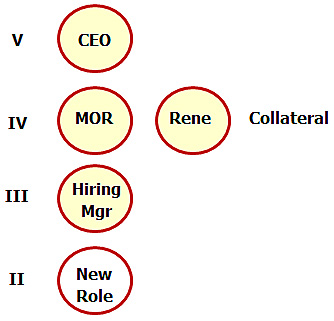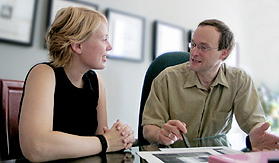“I get it,” Sara smiled. “I know, for someone to be a high performer, they have to value the work in the role. If they don’t place a high value on the work, it isn’t likely they will do a good job.”
“Not in the long run,” I confirmed. “In the short term, you can always bribe people with pizza, but once the pizza’s gone, you’re done.” (This is known as a diagnostic assessment.)
“I’m with you,” Sara nodded. “But how do you interview for values. I am afraid if I ask the question, straight up, I am going to get a textbook answer. The candidate is just going to agree with me.”
“Sara, when you are observing your team, watching them work, can you see their values?”
Sara stopped. “I think so, I mean, I can see enthusiasm. I can tell when someone is happy.”
“How can you tell?”
“I can just watch them,” she replied. “I can see it in their behavior.”
“Exactly. You cannot see a person’s values, you can only see their behavior. And that is what you interview for, their behavior. As a manager, just ask this question – How does a person with (this value) behave?”
Sara’s eyes narrowed. I continued.
“Let’s say that you have an accounting position and that accuracy, specifically with numbers is an important value.”
“You can’t ask them if they think accuracy is important. Of course, they will say – yes.”
I nodded. “As a manager, ask yourself this question. How does a person behave if they value accuracy in their work.”
“I know that one,” Sara jumped in. “I once asked our bookkeeper how she always balanced to the penny. She told me she always added things twice. People who value accuracy in their work always add things twice.”
“So, what question would you ask?” I pressed.
“Tell me about a time when accuracy was very important. How did you make sure you balanced to the penny?”
______
The next group in our Hiring Talent program starts next Monday. To join the group, follow this link to pre-register.

